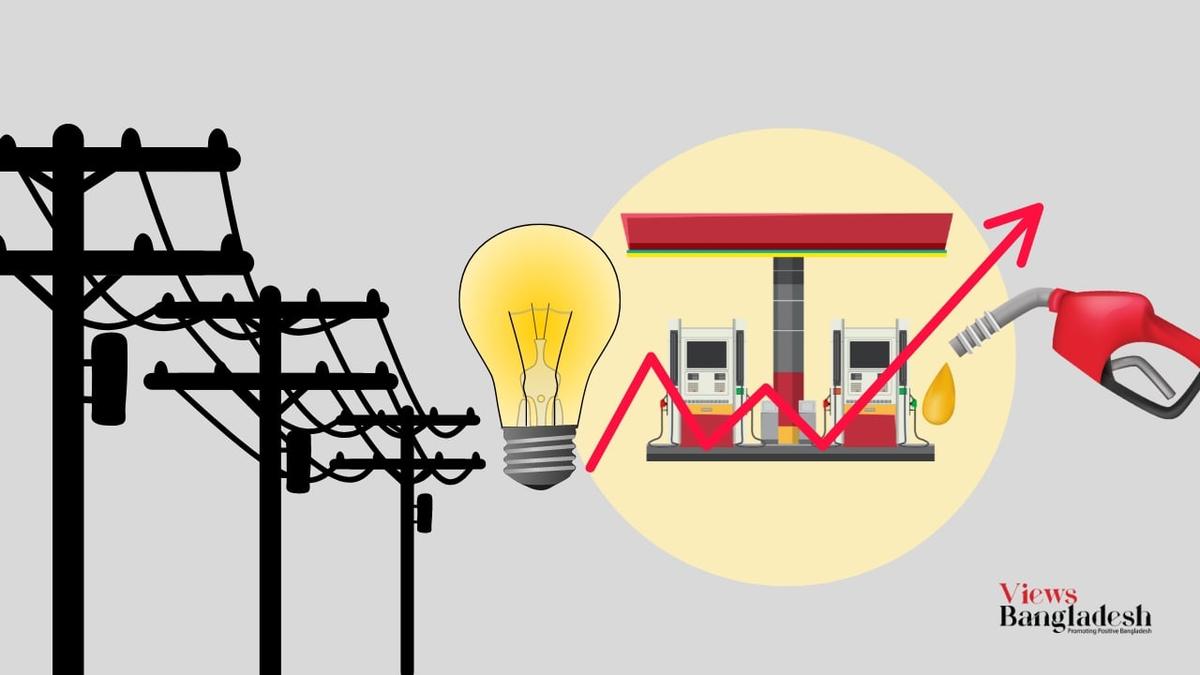Power and Energy

Lessons from Bangladesh’s tussle with Adani Power
“Did you hear that Adani is refusing to supply Bangladesh with electricity?” a friend asked me recently. I knew it was a loaded question, my friend being a nationalist. “You recall wehad no power because we couldn’t pay for shiploads of fuel and coal just a few years back?” I asked back.

Power plants producing less electricity than capacity
The country has a total installed capacity of 26,364 MW in power plants. Amidst an intense heatwave on April 30, the highest electricity generation recorded was 16,477 MW. Typically, the production ranges from 10,000 to 12,000 MW, and during nighttime, it increases to 14,000 to 15,000 MW. This means that even on the highest production days, about 10,000 MW of capacity remains idle daily. On average, 37% of power plants are not utilized. This raises the question of whether such a high number of power plants was necessary.

Power import from India to get costlier
The cost of importing electricity from India has increased. A review of the electricity import costs over the past five years shows that in the last fiscal year alone, the cost of imported electricity jumped by 2 taka 6 paisa per kilowatt-hour (unit). When questioned about this price increase, many attributed it to the start of coal power imports from Adani. The Adani Group's plant in Jharkhand was constructed solely for selling electricity to Bangladesh. It has been criticized for having slightly higher electricity prices compared to other imported coal-fired power plants in the country.

Why is Bangladesh fascinated in the renewable energy of the neighbor
The price of solar photovoltaic panels has decreased to 11 cents per watt in the global market. Adding incidental costs for inverters and infrastructure brings the cost to 14 cents per watt. Without any additional expenses for land acquisition and management, Bangladesh is seeing the potential for renewable energy production through solar power. Bangladesh is seeking to import electricity generated from renewable sources like Nepal, Bhutan, and India. But why? So, is Bangladesh paying more attention to buying electricity produced by renewable energy from its neighbors? It is not unusual to ask such a question.

Why so much idiotic discrepancies in Titas accounts
Titas Gas Distribution Company at a press conference recently claimed that it has brought down the system loss from 23 percent to 8 percent. As such, the company has reduced the system loss by 14 percent. That is, 14 percent gas has been saved.

Why do we feel need to close shops at 8pm when load shedding increases?
In China, with a population of 1.41 billion, it is mandatory to close shops and markets during the evening hours, which is strictly adhered to by everyone. Evening here refers to either 5 or 6 o'clock. Similar rules are followed in Europe and America as well. No transactions are allowed after evening hours, and shops must remain closed. Therefore, no industrialized country keeps markets open after evening. Then why can't we close shops at 8 PM? If shops close at 8 PM, the government has to intervene in a structured manner. When power distribution companies conduct campaigns, shops close at 8 PM. If the campaign stops, no one closes shops before 10 PM. On the other hand, the government only imposes restrictions on shop closure to increase load shedding.

Will the risks of LNG spot market persist?
Main source of the country's energy is natural gas. In addition to extraction from domestic mines, liquefied natural gas (LNG) is now imported. Over the past four years, one-third of the supplied gas has come from LNG. Gradually, the government is increasing the amount of imported gas. If oil and gas are not found in the Bay of Bengal, there is no alternative to imports. However, it is urgent to analyze the safety of the source of imports. The question arises: are we lagging behind in that area?

What will we do with this 'Sustainable Renewable Energy Development Authority'!
The government has set up the 'Sustainable and Renewable Energy Development Authority' (SREDA) to develop renewable energy in the country. This organization is working on the development of renewable energy. On March 11, the organization presented a research paper. According to that study, $66 billion is needed to convert the country's fossil fuel and electricity-powered irrigation pumps to solar-powered irrigation pumps. The plan shows that SREDA has planned to convert 17 lakh pumps to solar power by 2031.

Exploring Alternative Fuels: A Path to Economic Stability Without Price Hikes
The current economic crisis and mounting stress in Bangladesh are deeply concerning. A significant portion of the population, particularly the lower middle class and impoverished communities, are experiencing stagnant income levels while facing a surge in expenditures. Balancing income with expenses has become increasingly challenging. Since the onset of the pandemic, there has been a noticeable escalation in the prices of essential goods. This trend has been exacerbated by fluctuations in international fuel prices. While global fuel prices have experienced a decrease, this reduction has not been reflected in the local market, leading to a disproportionate burden on consumers across various sectors.

Why the price of fuel and electricity increased ahead of Ramadan!
In various countries around the world, discounts are often offered on goods before Ramadan. However, the opposite scenario is observed in our country. Such incidents have deeply concerned us. It is assumed that this time around, we will witness a normal scenario where prices of goods will follow the usual trend. Furthermore, the increase in electricity and fuel prices will exacerbate inflationary pressures. The electricity and fuel sector authorities have announced that starting from March, there will be an increase in the prices of electricity and fuel. Now the question arises, why did such measures need to be taken just before Ramadan?
